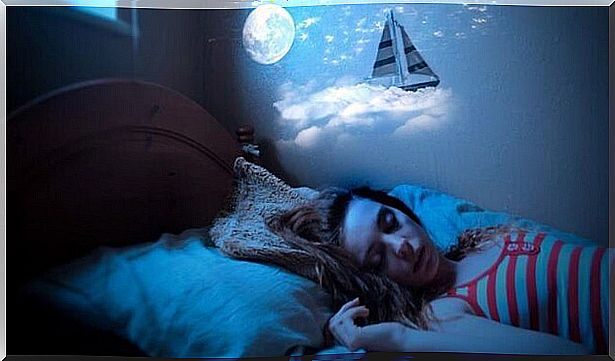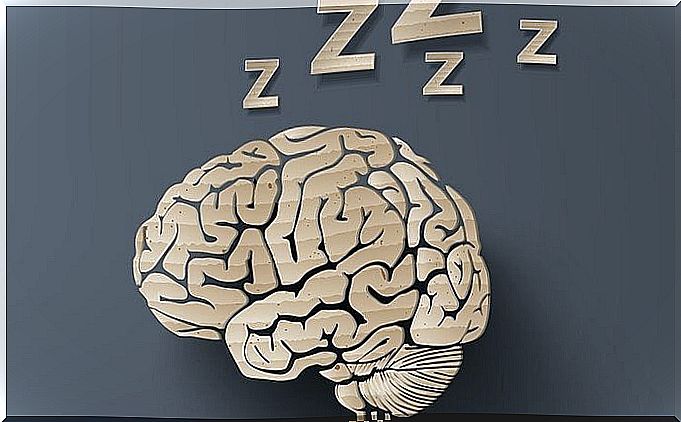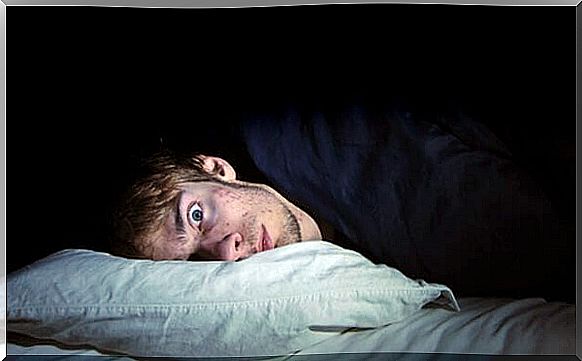Talking In Sleep: Sonniloquio

Somniloquy is a sleep disorder in which the sufferer talks while sleeping. Curiously, talking in your sleep is much more common than we think, although not everyone expresses it in the same way. Some make incomprehensible sounds, others utter disjointed words.
However, those who speak in their sleep have great fear: they are afraid of revealing secrets that they would like to keep as such. Can a person suffering from sleep talk have a coherent conversation with someone? Can answers be extracted from her that she would not voluntarily disclose?
Talking in your sleep: what is somniloquy really?
Sleep talking is a very common parasomnia at a young age, but it can also occur in cases of stress, anxiety, fever, or a mood disorder. The cause of this sleep disorder seems to lie in the alteration of certain areas of the brain in terms of activation and inhibition.
Different brain areas are activated and inhibited as we pass the various stages of sleep, which are 5 in total: falling asleep (stage 1), light sleep (stage 2), deep sleep (stage 3 and 4) and REM sleep (step 5). Sleep talking can occur during the last phase, but also in the deep sleep phases.

Talking in your sleep varies from person to person. Some suddenly scream frightening those who sleep next to them, others have a long enough monologue, but difficult to interpret. Emotions can also occur at times.
One wonders if it is possible to have a real conversation with a person with this disorder. The answer is “it depends”. There are people who give monologues, others seem to be conversing with someone who answers them. In the latter case, we could try to ask a few questions. Will they answer what we asked them?
Problems related to sleep talk
Many people who suffer from this parasomnia risk becoming the object of ridicule from others who perhaps insinuate in them the doubt that during sleep they have revealed profound secrets. If, however, they were to investigate to trace the questions asked and their answers, they will certainly find nothing.
This is because the phrases, words or monologues pronounced generally do not respond to any external stimulus, they are a product of the unconscious and perhaps of the dream that the person is having at that moment. Even if we ask a person who is talking in their sleep a question and they answer us, their words are likely to be incoherent and out of place.
Let’s take an example. A woman is sleeping on the sofa and a friend is sitting next to her. Suddenly, the woman murmurs something, her friend asks: “What?” and that one speaks louder. The friend approaches, repeats the question and, listening carefully, hears them say: “Soundtrack”. As long as the friend keeps repeating the question, it is likely that the answer is always the same or that she will not even get an answer.

This example is revealing because usually those dealing with people with sleep talk continue to ask the same question due to poor articulation of words and their difficult understanding. C hi familiar with these situations, it can confirm that the person who talks in his sleep typically turns around and continues to sleep.
One of the problems with sleep talk can arise, for example, between couples, when one of the partners pronounces a name or phrase that can be misunderstood. The words you speak don’t have to mean something, in fact, they probably don’t make sense. However, they could give rise to misunderstandings and misunderstandings.
Other times, the screams, crying or any other emotion expressed by the person speaking in his sleep prevent the rest of those around him, frightening him. In this case, it is recommended to perform relaxation exercises and to rest properly, because such episodes are not common. In fact, they last for a minute or two.










